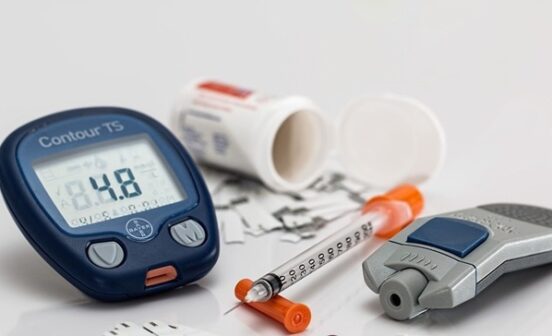Informatics ApproachesPartnershipPrevention Using data to better understand risks for heart attack patients

Survivors of heart attack who had cardiac arrest at the same time are at increased risk of early death after discharge
Patients who survive having a heart attack that had a cardiac arrest at the same time are at increased risk of dying in the three years following hospital discharge, on average, compared to heart attack patients who did not experience a cardiac arrest.
These new findings by researchers from the National Institute of Health Research Health Informatics Collaborative (NIHR-HIC), which is supported by the NIHR Imperial Biomedical Research Centre (BRC) and led by Imperial College Healthcare NHS Trust, have been published in the Journal of the American Heart Association.
A heart attack happens when blood flow to the heart is blocked and can cause chest pain, shortness of breath, dizziness and sweating. It can be fatal if left untreated. A cardiac arrest is when the heart stops pumping blood around the body, meaning the person will stop breathing normally. Cardiac arrest is fatal if not treated immediately.
Most heart attacks do not lead to cardiac arrest but, in some cases, the blockage may cause the heart to stop beating. When cardiac arrest occurs, heart attack is a common cause.
The study, led by Imperial College Healthcare NHS Trust and Imperial College London, draws on data from 13,444 patients collected between 2010 and 2017 as part of the NIHR-HIC, a collaboration of NIHR BRCs across the country, which work together to facilitate the use of NHS data for research that can benefit patients.
The data came from patients who were admitted and discharged from five NHS Trust hospitals in England. They were followed up on average for three years. 280 patients had a heart attack and cardiac arrest and survived to discharge.
The study has shown for the first time that patients who had a heart attack and then a cardiac arrest were at a greater risk of developing further complications. Those who had a cardiac arrest at the time of their heart attack were twice as likely as those suffering heart attack alone to develop abnormal heart rhythms, known as ventricular arrhythmia (VA), after discharge. In patients with VA, the heart begins beating faster before going into spasm and stopping pumping completely – causing sudden cardiac arrest.
Those with a cardiac arrest were also found to be 36 per cent more likely to die within three years following discharge from hospital, on average.
The researchers suggest this group of patients may benefit from further research in to additional treatments such as an implantable cardioverter defibrillator (ICD) – a small device implanted in the chest that can detect and stop abnormal heart rhythms – to potentially improve long-term health outcomes.
Senior author of the study, Dr Fu Siong Ng, who is a consultant cardiologist and cardiac electrophysiologist at Imperial College Healthcare, as well as clinical senior lecturer in cardiac electrophysiology at Imperial College London said: “Most patients who have heart attacks do not experience a cardiac arrest. However, our study has revealed that there are a small group of patients who do, and if they survive the initial cardiac arrest, they are at increased risk of further complications and early death. This study has highlighted a need to potentially reconsider how we treat these patients and update current guidelines. For example, in addition to the current treatments on offer to heart attack patients, these patients may also benefit from ICDs. Our study provides an evidence base for further clinical research to understand whether an ICD could have a positive impact for these patients.
“The data from the NIHR-HIC database has allowed us to look at trends in thousands of heart attack patients, something that would not have been possible with a clinical study. Now we understand more about the potentially fatal impact for this group of patients, we can do more research to validate this theory and investigate the potential impact of additional treatment on the long-term health outcomes for these patients.”
Arunashis Sau, first author of the study and Clinical Research Fellow at Imperial College London, added: “This is the first study to have found a link between patients who have heart attacks together with cardiac arrests and early death after surviving the initial event. Our findings have significant implications for this subgroup of patients and how we treat them. The study raises the question on what more we can do to potentially provide more treatment options so that we can improve these patients’ outcomes.”
Doctors currently treat heart attack patients by unblocking coronary arteries in the heart and by giving beta blocker tablets, which slow down the heart. Patients who experience cardiac arrests are treated with an ICD. However, patients who have a cardiac arrest because of a heart attack do not qualify for this treatment, as the cause of their cardiac arrest is considered to have been treated, usually by unblocking the artery that caused the heart attack.
This research supports findings from previous studies, which have suggested that patients who experience a cardiac arrest following a heart attack may represent a subgroup of patients who are at risk of further complications. However, these studies have limited long-term follow-up data for patients and are significantly smaller.
By using NIHR-HIC data, researchers were able to analyse the long-term impact of sudden cardiac arrest on heart attack patients.



